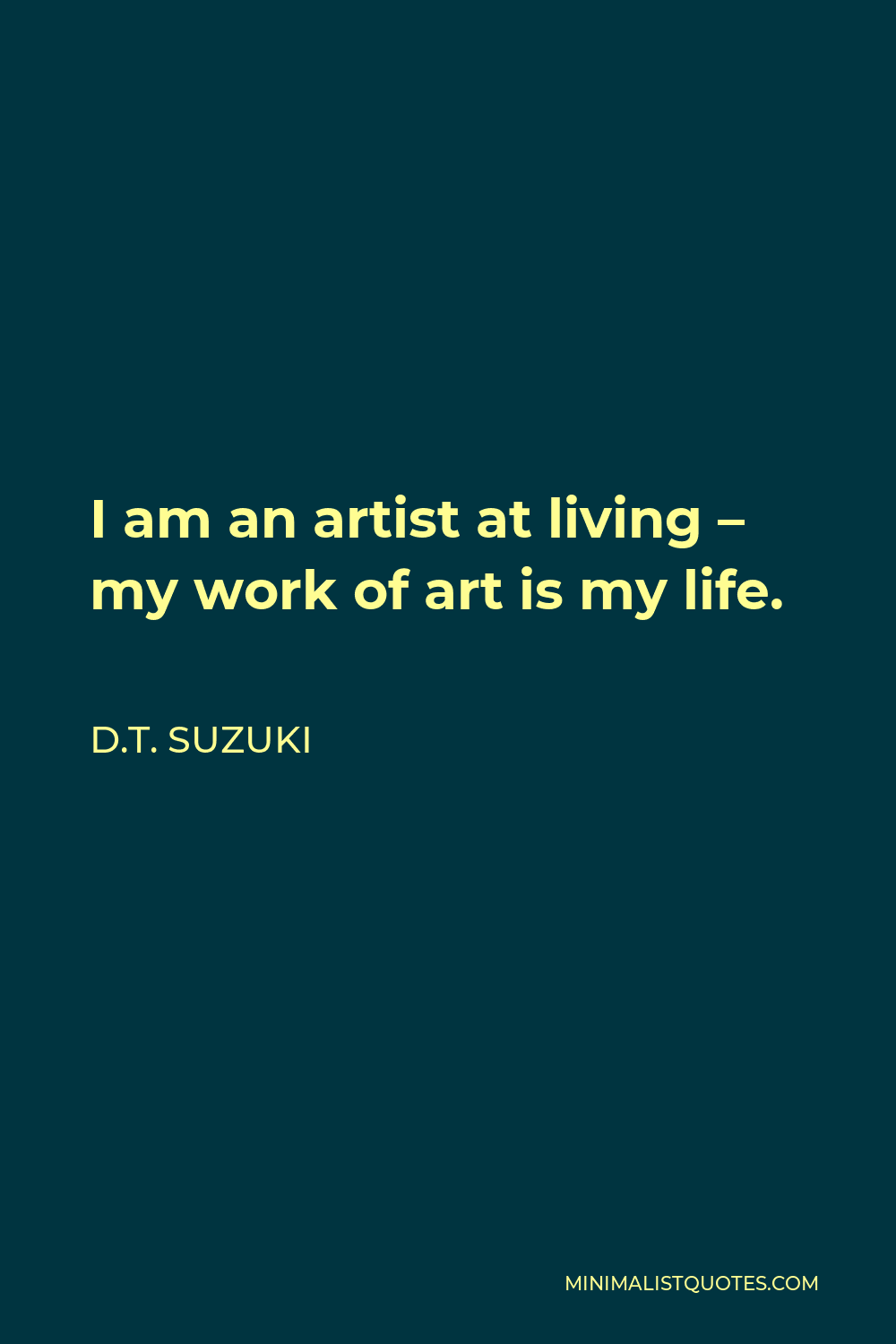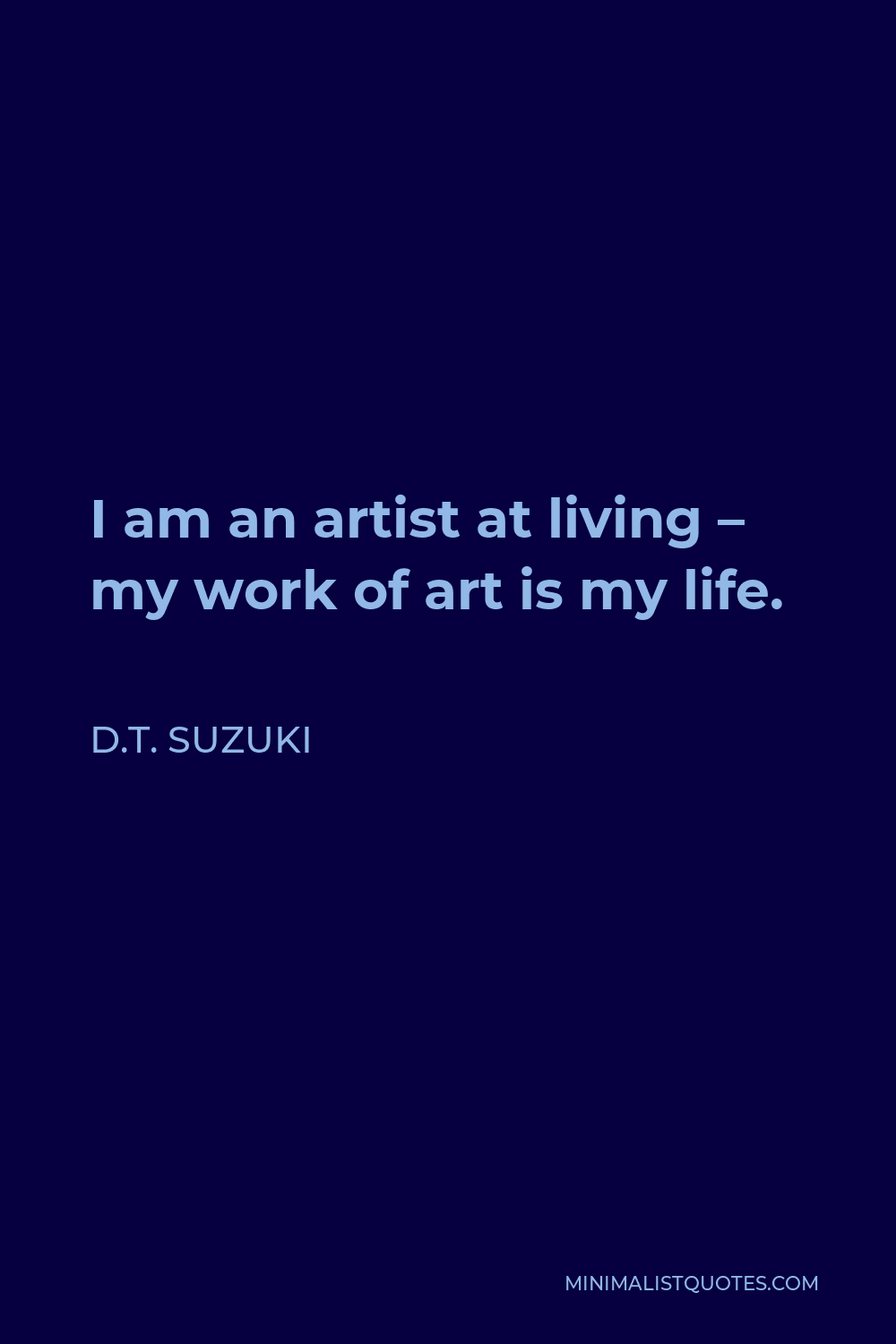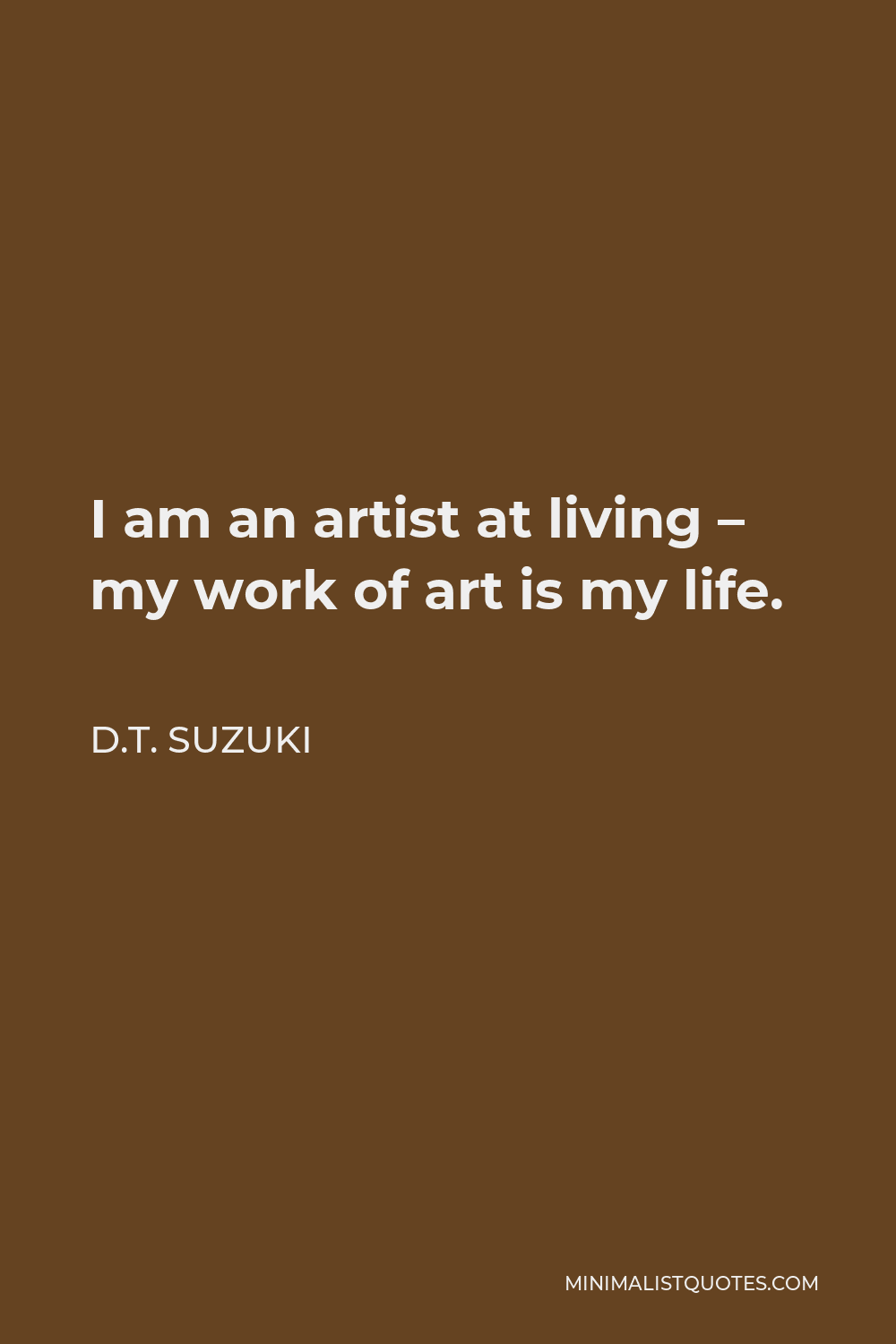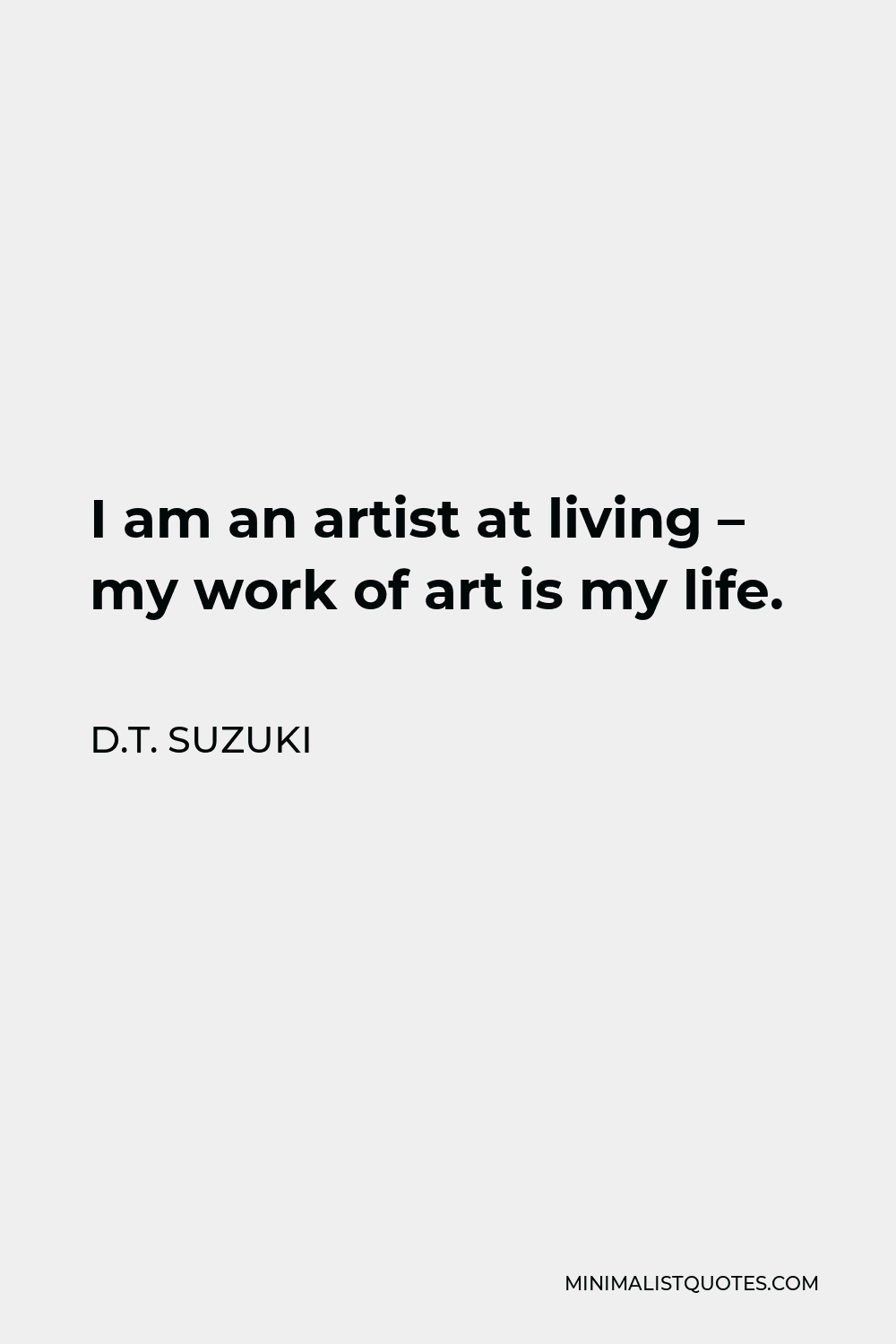Zen purposes to discipline the mind itself, to make it its own master, through an insight into its proper nature. This getting into the real nature of one’s own mind or soul is the fundamental object of Zen Buddhism.
D.T. SUZUKII am an artist at living – my work of art is my life.
More D.T. Suzuki Quotes
-





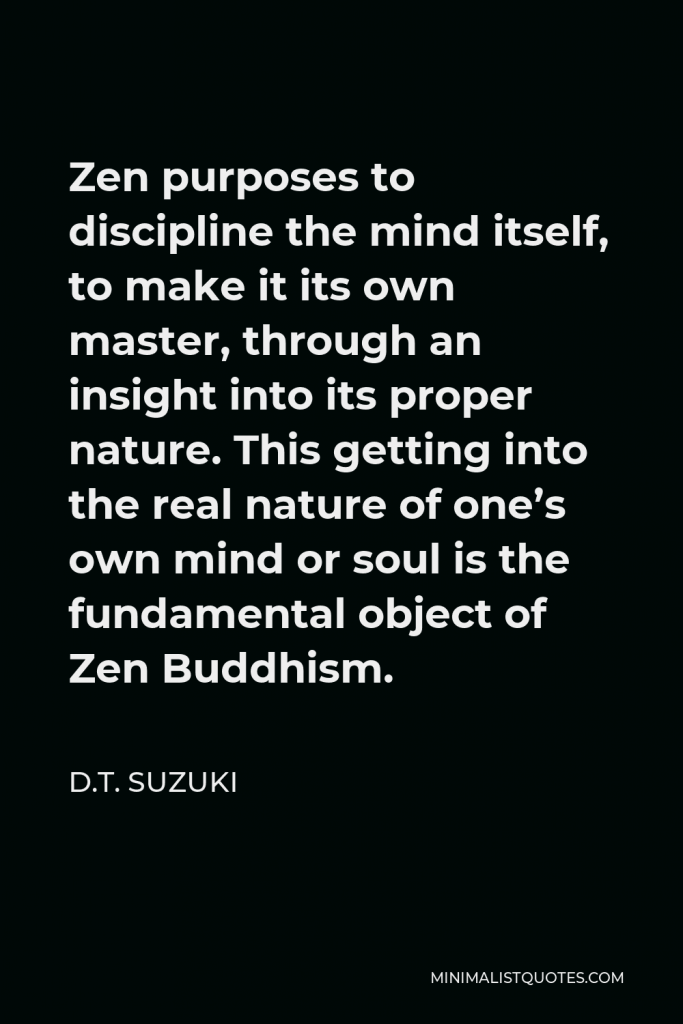

-





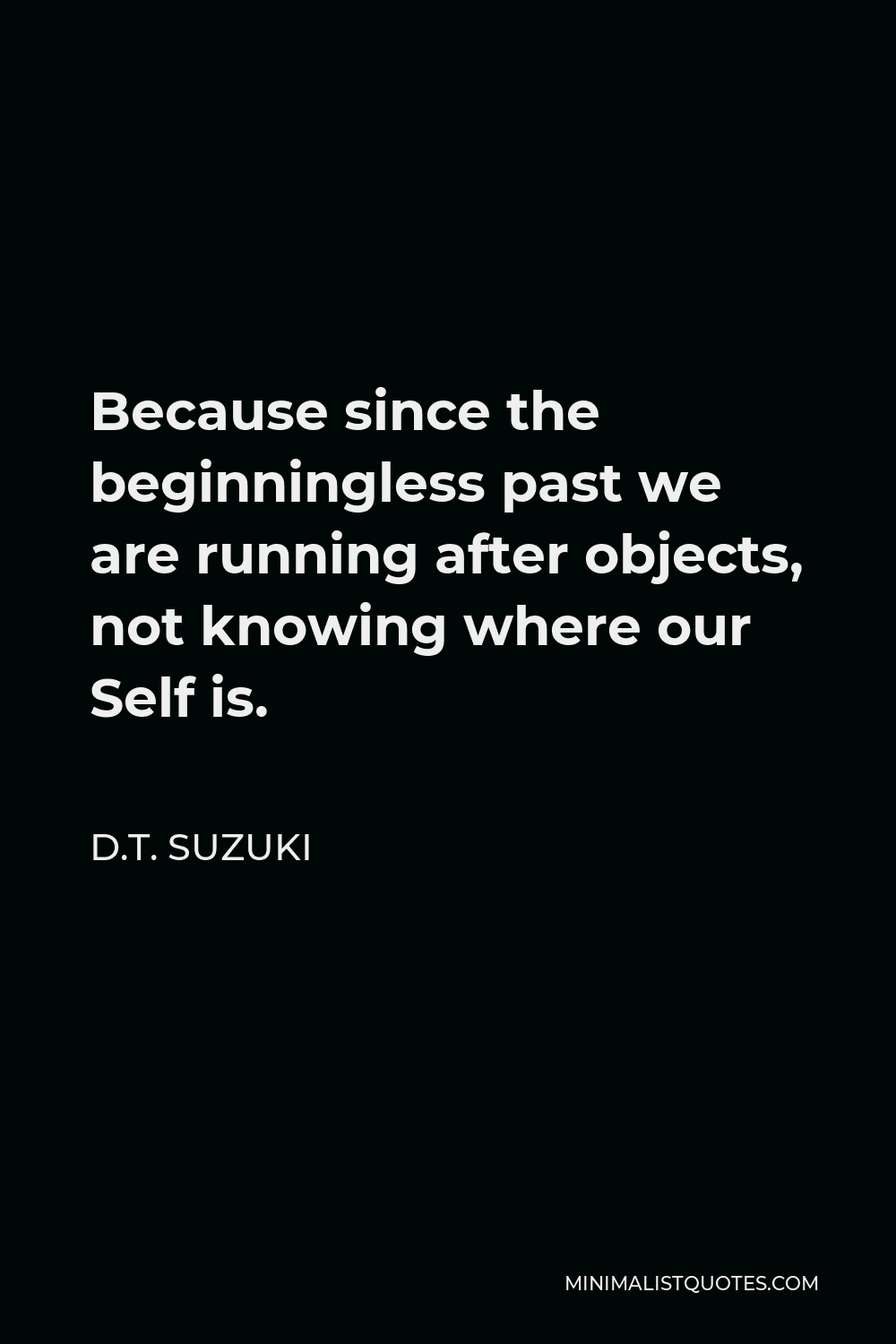
Because since the beginningless past we are running after objects, not knowing where our Self is.
D.T. SUZUKI -





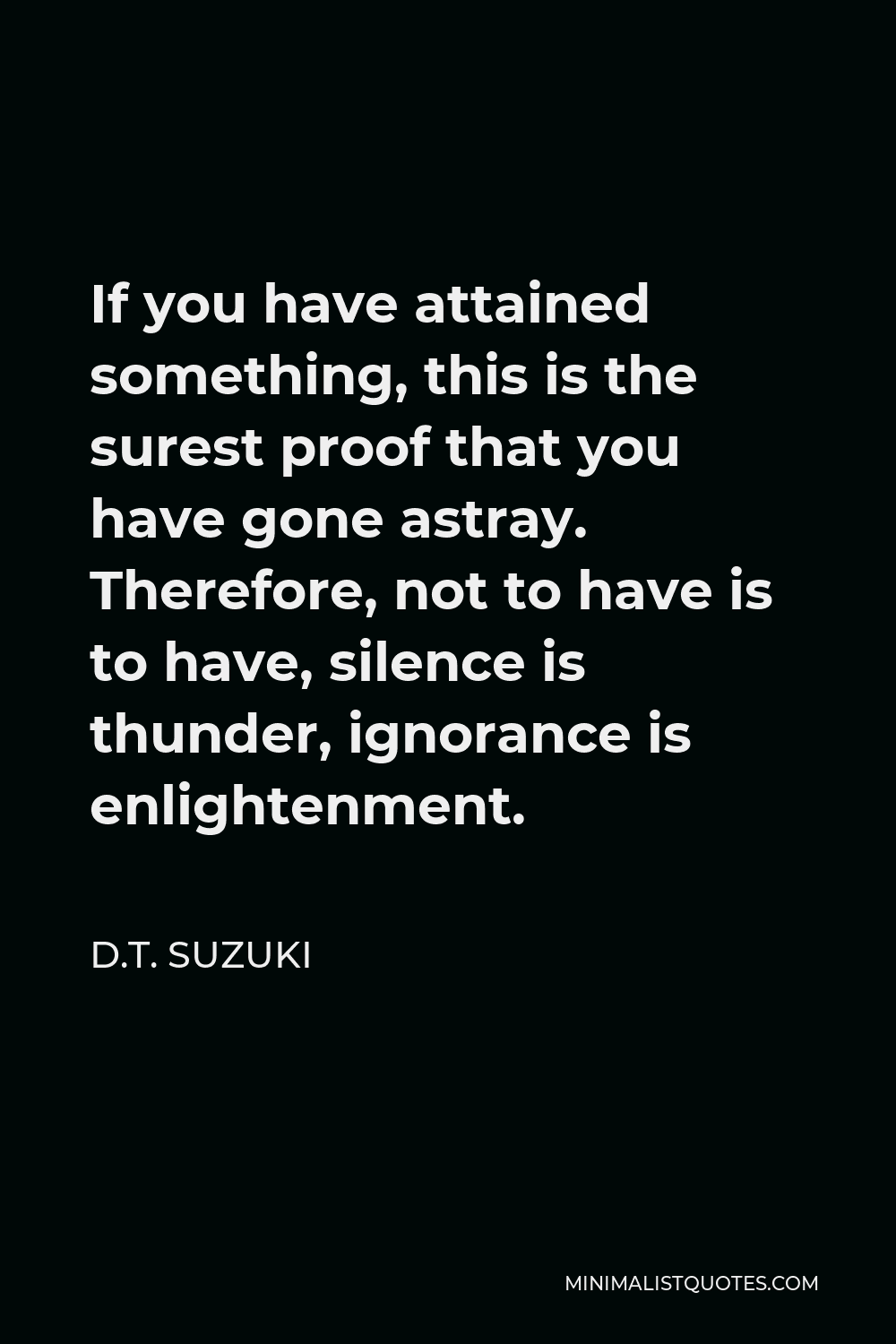
If you have attained something, this is the surest proof that you have gone astray. Therefore, not to have is to have, silence is thunder, ignorance is enlightenment.
D.T. SUZUKI -






Dhyana is retaining one’s tranquil state of mind in any circumstance, unfavorable as well as favorable, and not being disturbed or frustrated even when adverse conditions present themselves one after another.
D.T. SUZUKI -





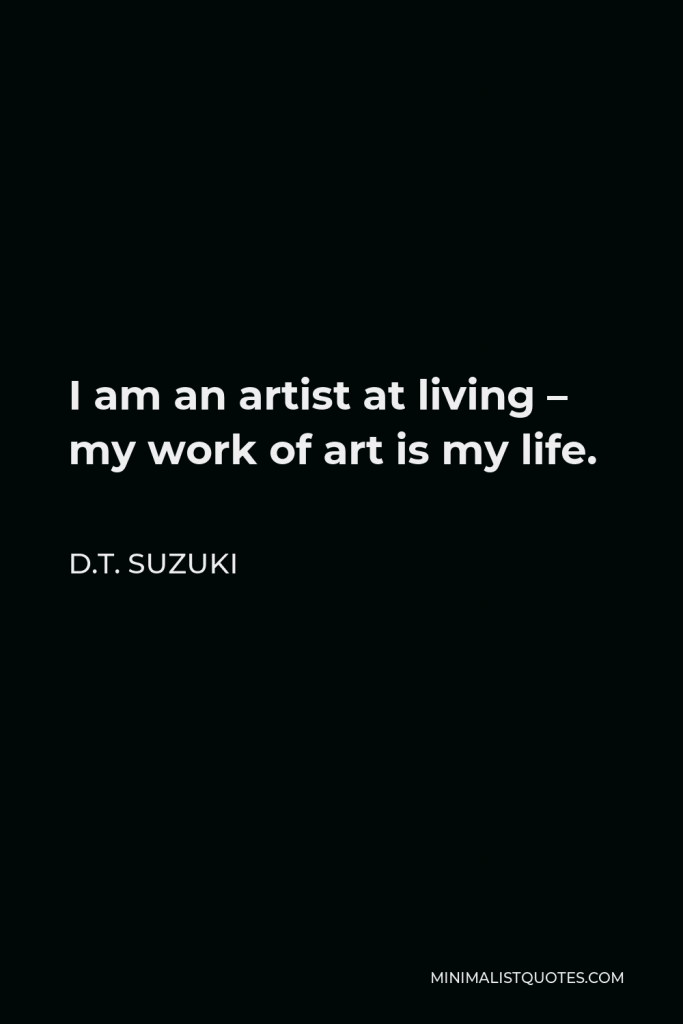

I am an artist at living – my work of art is my life.
D.T. SUZUKI -





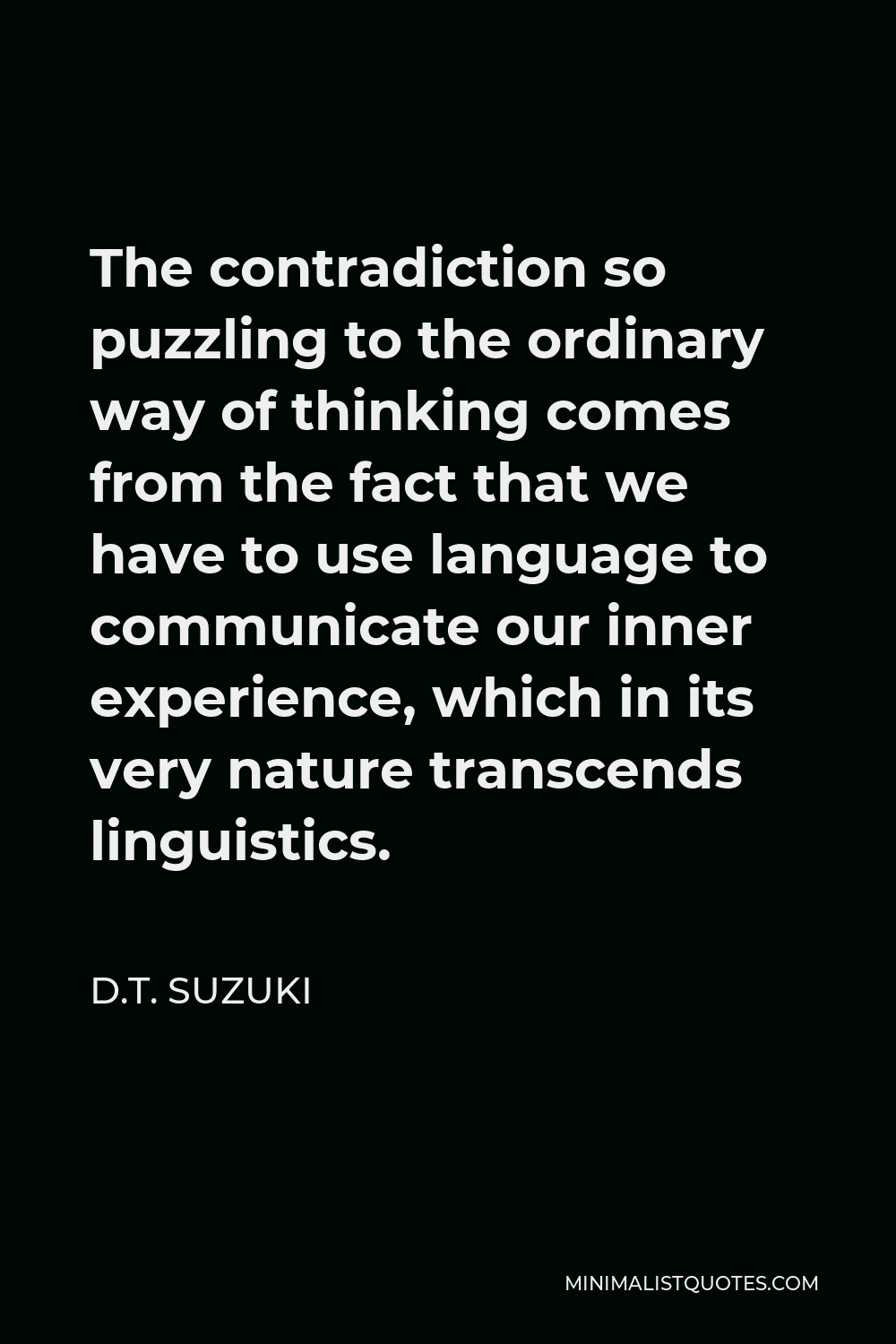
The contradiction so puzzling to the ordinary way of thinking comes from the fact that we have to use language to communicate our inner experience, which in its very nature transcends linguistics.
D.T. SUZUKI -





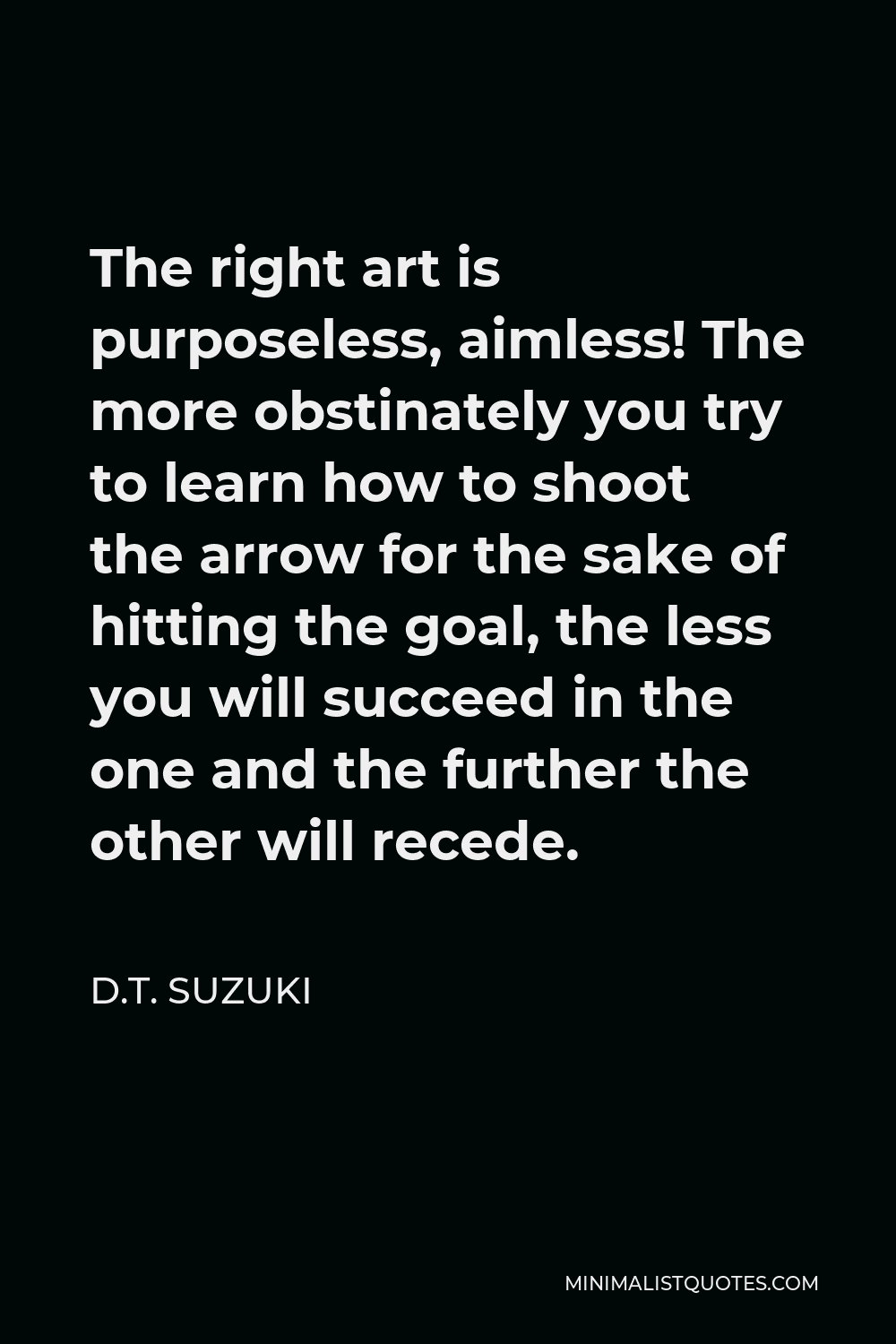
The right art is purposeless, aimless! The more obstinately you try to learn how to shoot the arrow for the sake of hitting the goal, the less you will succeed in the one and the further the other will recede.
D.T. SUZUKI -





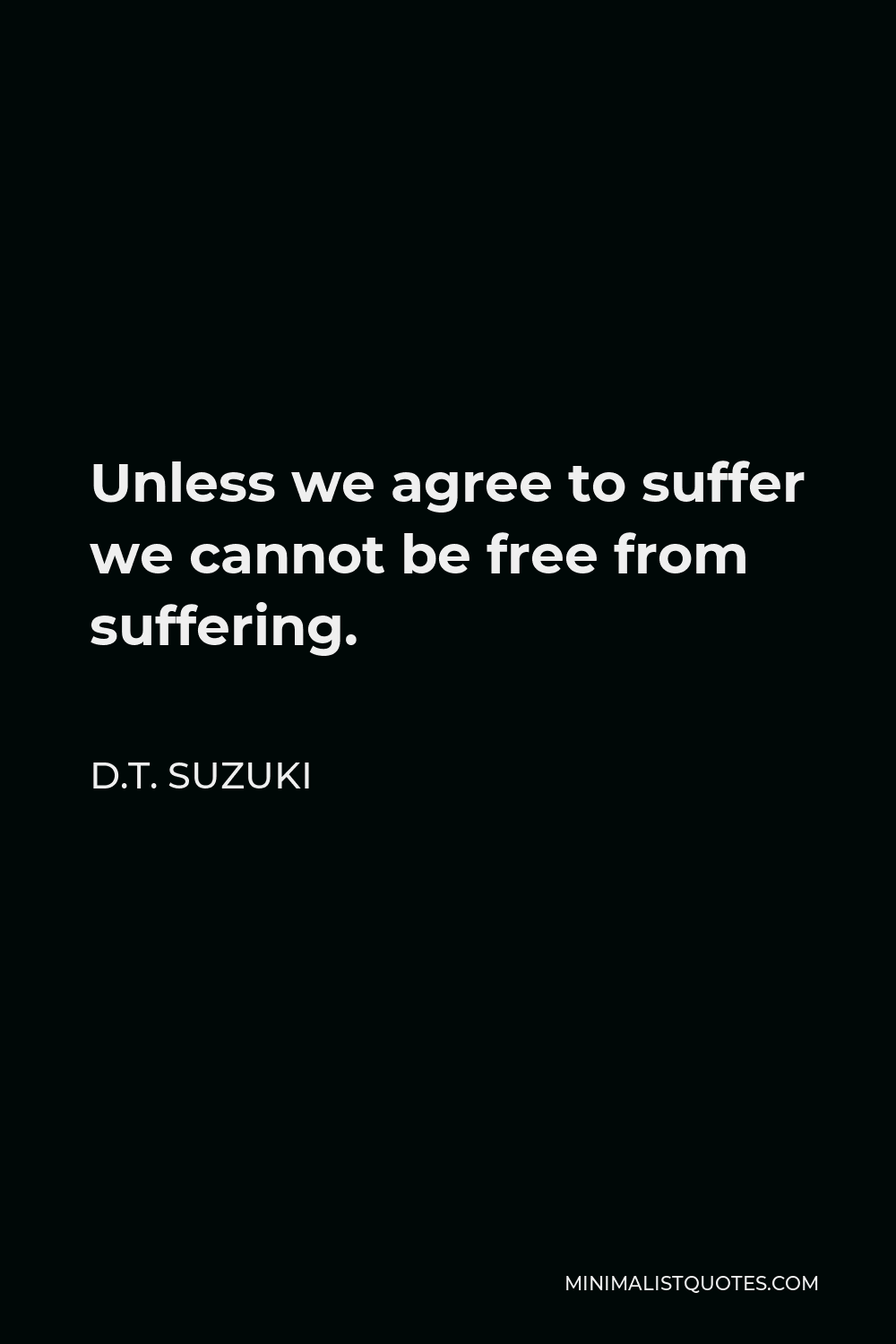
Unless we agree to suffer we cannot be free from suffering.
D.T. SUZUKI -





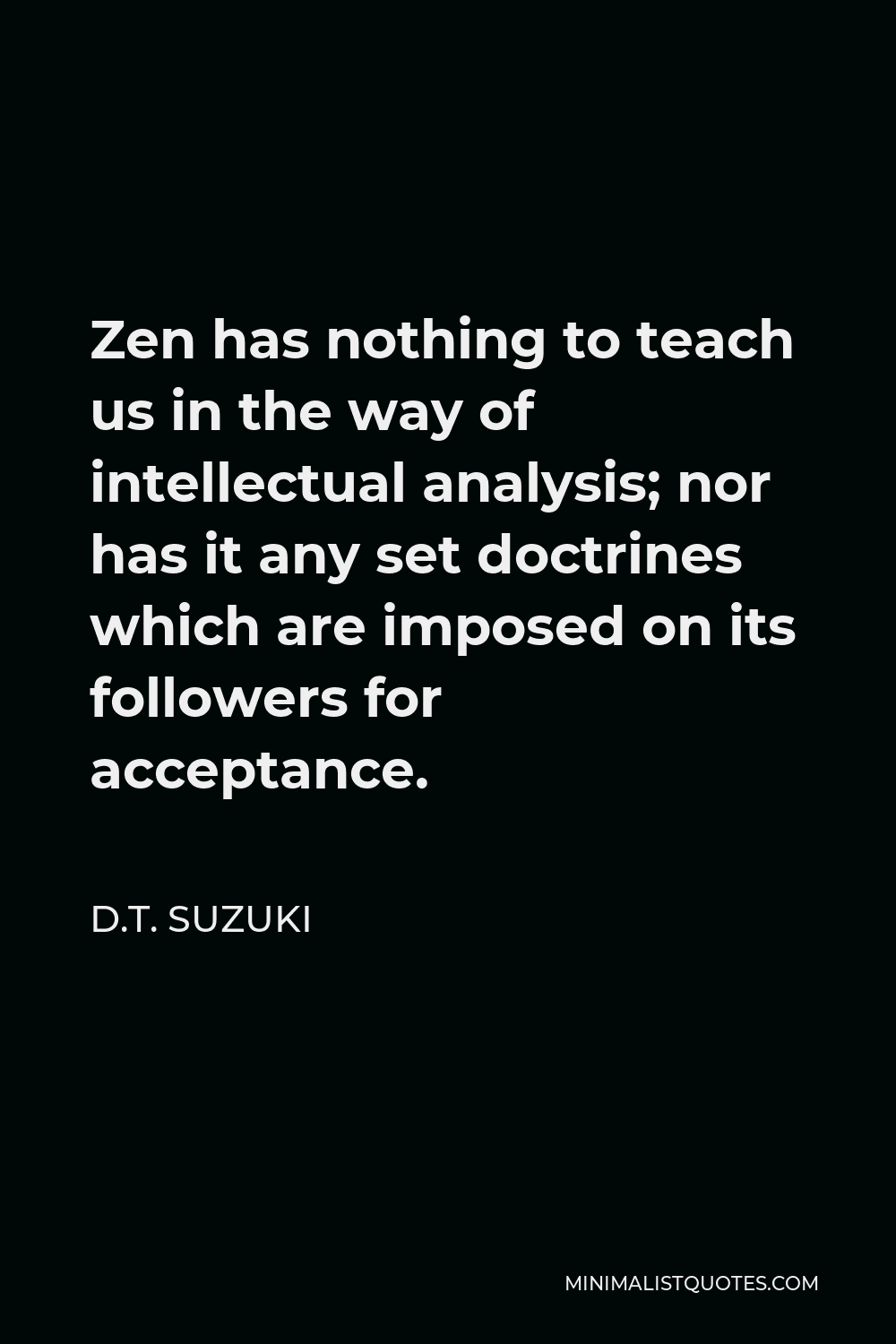
Zen has nothing to teach us in the way of intellectual analysis; nor has it any set doctrines which are imposed on its followers for acceptance.
D.T. SUZUKI -





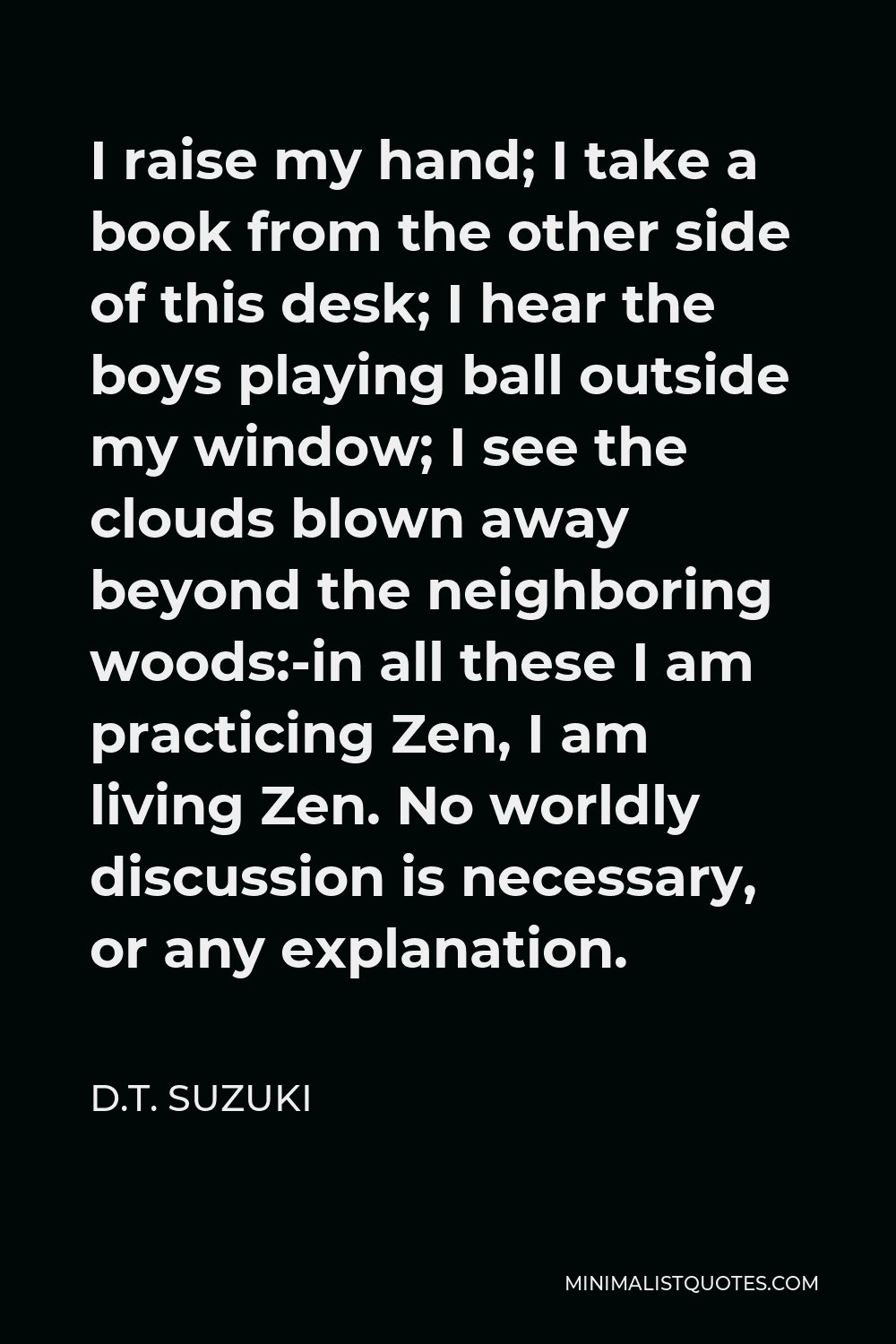
I raise my hand; I take a book from the other side of this desk; I hear the boys playing ball outside my window; I see the clouds blown away beyond the neighboring woods:-in all these I am practicing Zen, I am living Zen. No worldly discussion is necessary, or any explanation.
D.T. SUZUKI -





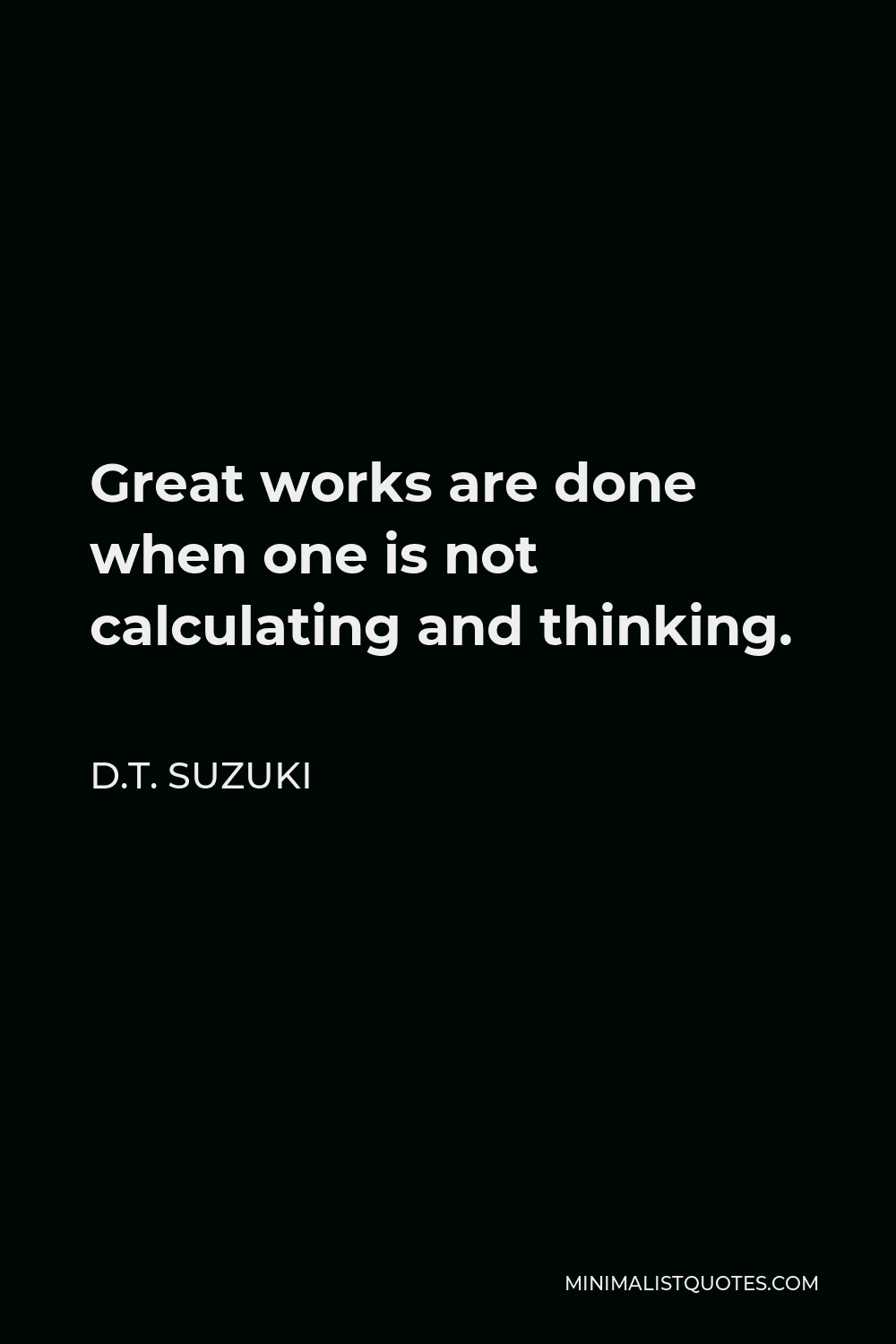
Great works are done when one is not calculating and thinking.
D.T. SUZUKI -





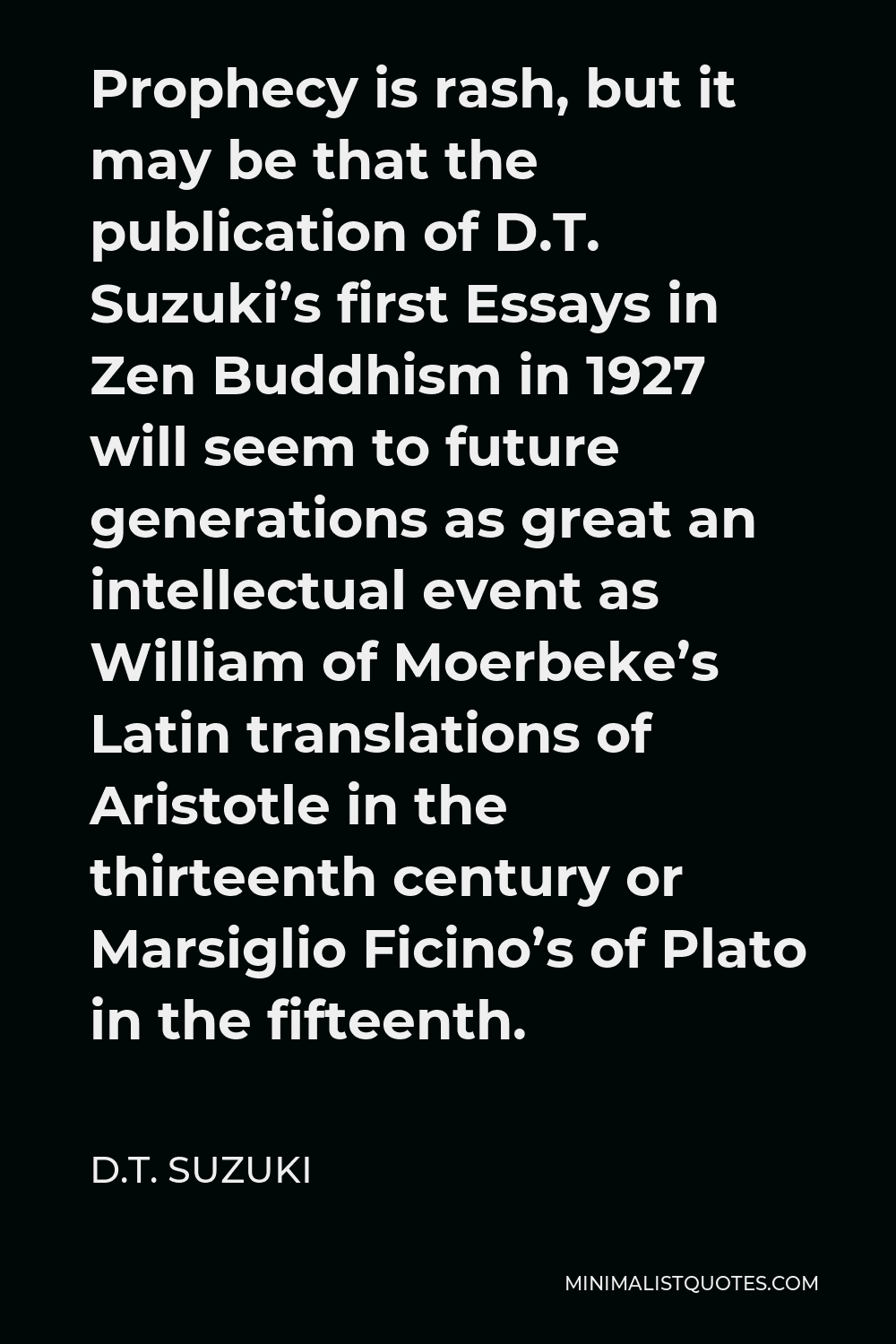
Prophecy is rash, but it may be that the publication of D.T. Suzuki’s first Essays in Zen Buddhism in 1927 will seem to future generations as great an intellectual event as William of Moerbeke’s Latin translations of Aristotle in the thirteenth century or Marsiglio Ficino’s of Plato in the fifteenth.
D.T. SUZUKI -





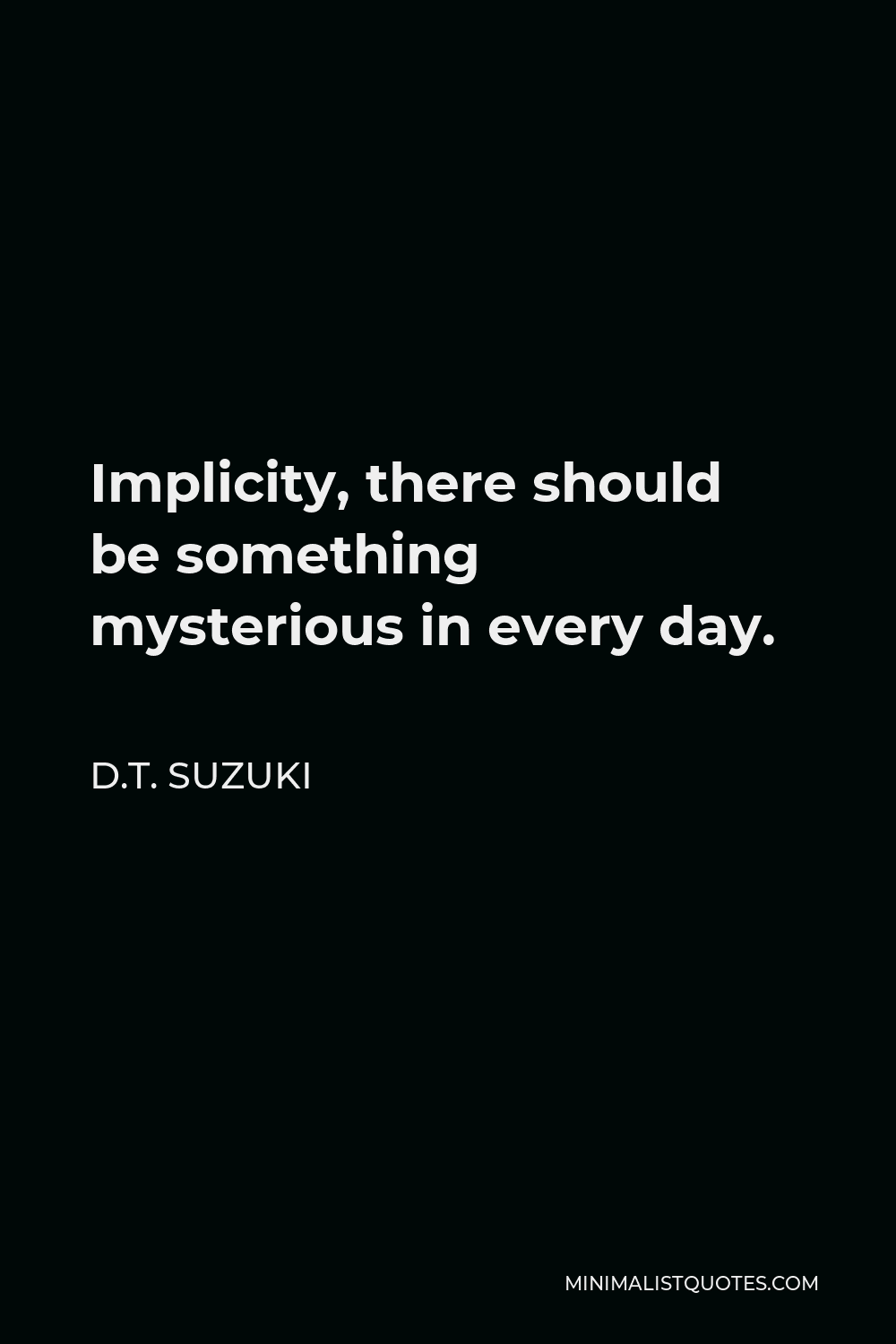
Implicity, there should be something mysterious in every day.
D.T. SUZUKI -






That’s why I love philosophy: no one wins.
D.T. SUZUKI -





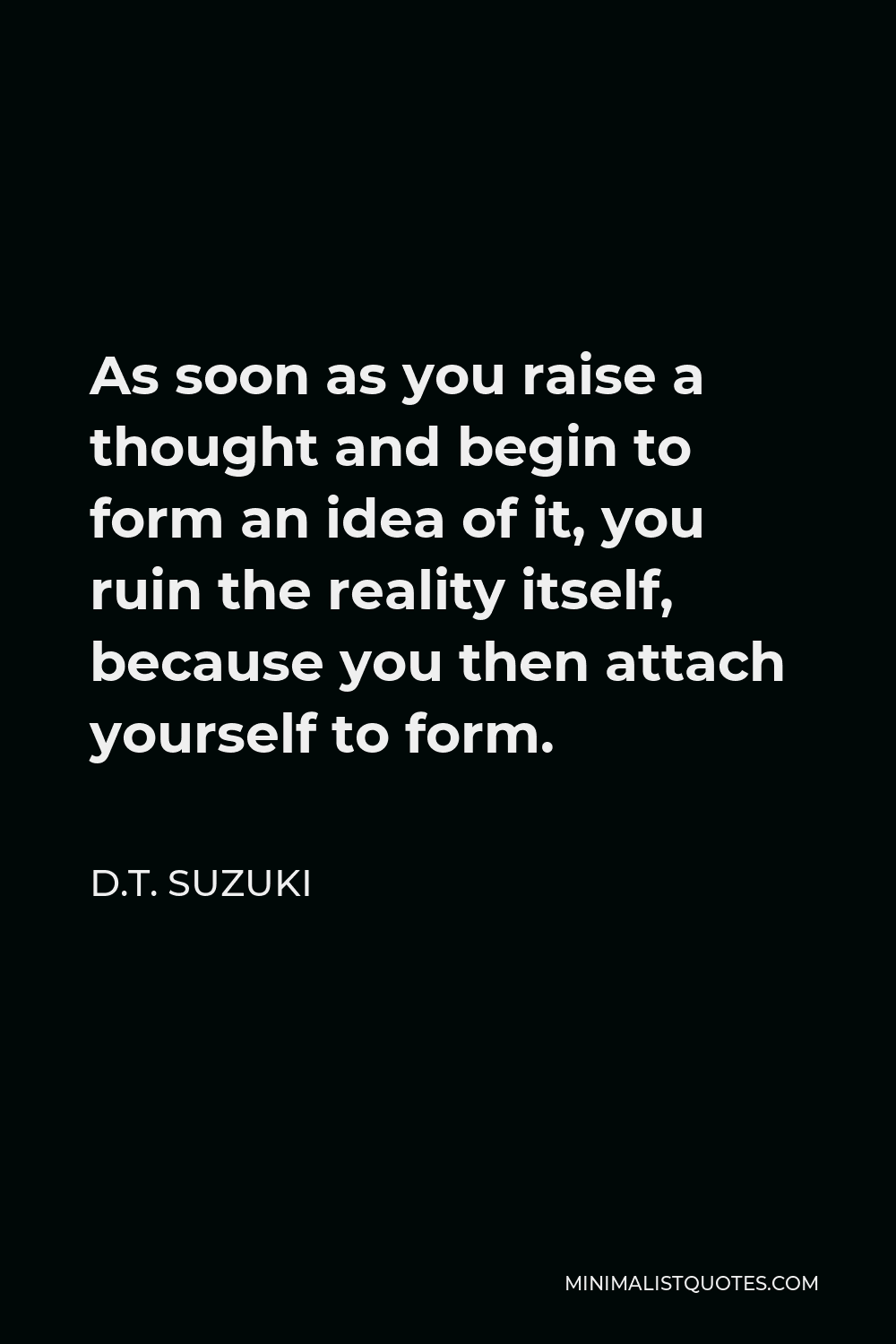
As soon as you raise a thought and begin to form an idea of it, you ruin the reality itself, because you then attach yourself to form.
D.T. SUZUKI -





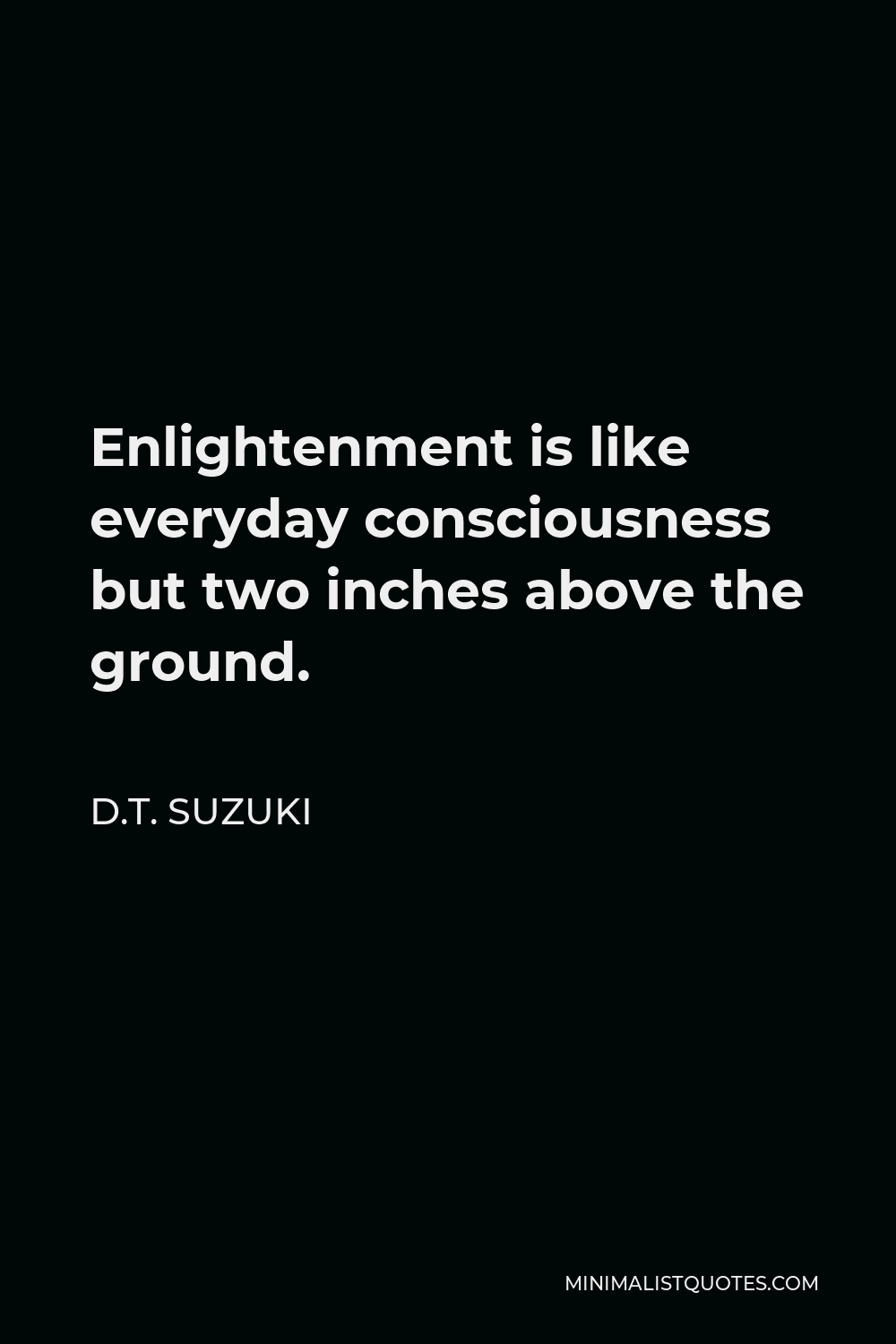
Enlightenment is like everyday consciousness but two inches above the ground.
D.T. SUZUKI

